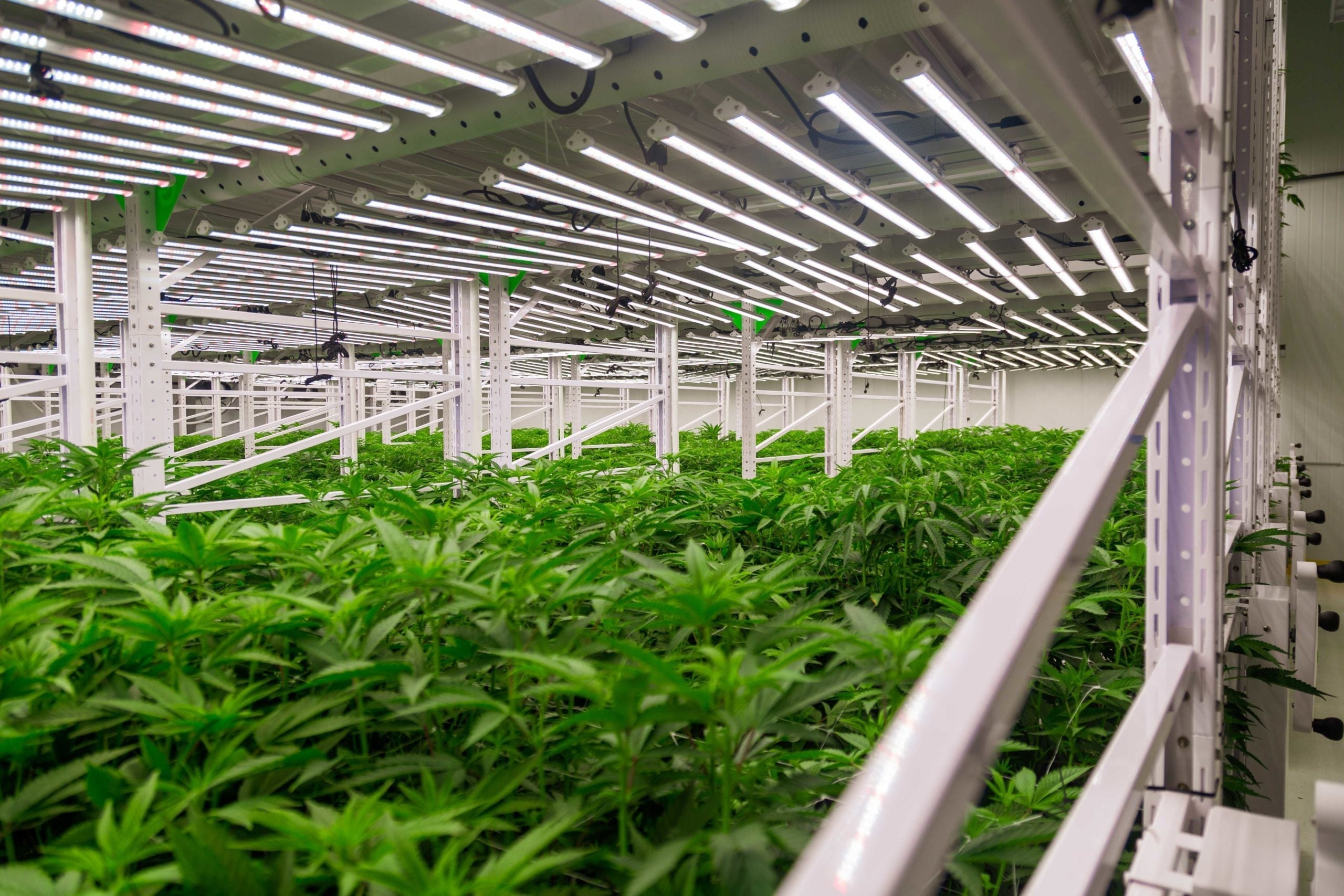
The Broken Promise: Trump's Stalled March on Marijuana Reform
In the ever-evolving landscape of American drug policy, few issues have captured public imagination quite like marijuana rescheduling. Once a fringe topic relegated to counterculture circles, it now sits at the intersection of health, economics, and politics. Enter President Donald Trump, whose second term has been marked by bold declarations but sluggish follow-through on cannabis reform. Two months after pledging swift action on moving marijuana from Schedule I to Schedule III under the Controlled Substances Act, the administration's inaction has drawn sharp rebuke from lawmakers. This delay isn't just bureaucratic red tape; it's a potential setback for an industry valued at over $30 billion annually, employing hundreds of thousands and touching the lives of millions who rely on cannabis for medical relief. As polls show overwhelming support for change, the question looms: why the holdup, and what does it mean for America's war on drugs?
Senator Wyden's Wake-Up Call: Echoes of Concern in the Capitol
Democratic Senator Ron Wyden of Oregon didn't mince words in a recent interview, labeling the Trump administration's foot-dragging as "extremely concerning." Wyden, a longtime advocate for modernizing cannabis laws, argued that the delay perpetuates the injustices of the failed war on drugs, a policy that has disproportionately affected communities of color and cost taxpayers billions. "Whether it’s lowering prescription drug costs, protecting health care, or bringing our nation’s cannabis laws into the 21st century, Donald Trump’s presidency is one big broken promise," Wyden stated emphatically. He vowed to rally Senate colleagues to pressure the White House, emphasizing that rescheduling would send a "huge message" about embracing a contemporary approach to marijuana. With over 70% of Americans favoring legalization according to Gallup polls, Wyden's frustration resonates beyond party lines, highlighting how inaction ignores voter will and stalls progress on issues like research barriers and tax equity for cannabis businesses.
Pledge to Postponement: Tracing Trump's Cannabis Timeline
Trump's journey with marijuana policy reads like a political thriller with plot twists aplenty. During his campaign last year, he endorsed rescheduling, framing it as a nod to states' rights and medical research. By August 2025, he escalated his rhetoric, promising a decision "within weeks" and even posting a video on Truth Social touting cannabis's health benefits for seniors, suggesting Medicare coverage for CBD as a groundbreaking initiative. Industry insiders buzzed with optimism; a senior advisor confided to The Marijuana Herald that rescheduling was a "sure thing," with messaging being fine-tuned. Yet, as October rolls in, the pledge remains unfulfilled. Sources close to the administration suggest Trump is tying the announcement to a high-profile event for maximum impact, but critics see it as classic procrastination. This isn't Trump's first rodeo—his first term saw no movement on cannabis despite similar murmurs, leaving advocates wary of history repeating itself.
Industry in Limbo: Economic Ripples of Rescheduling Delays
The cannabis sector, booming with legal sales topping $28 billion in 2024 alone, hangs in the balance. Rescheduling to Schedule III would acknowledge marijuana's medical value, slashing research restrictions that have hampered studies on its efficacy for conditions like chronic pain and epilepsy. More crucially, it would dismantle IRS code 280E, which bars deductions for Schedule I businesses, potentially saving operators millions in taxes. Imagine a dispensary owner deducting rent or salaries—basic business norms denied under current law. Delays exacerbate cash-flow woes, forcing reliance on cash transactions amid robbery risks. Banking reform, tied to rescheduling, could integrate the industry into mainstream finance, as evidenced by the bipartisan SAFER Banking Act. Without action, small operators struggle against black-market competition, and investors shy away, stunting growth in a market projected to hit $50 billion by 2028. Trump's hesitation isn't just policy; it's an economic chokehold on innovation.
Bipartisan Chorus: Senators Sound Off on Reform Roadblocks
Across the aisle, voices amplify Wyden's concerns. Republican Senator Steve Daines of Montana, a key sponsor of past banking bills, supports SAFE Banking to "take cash off the streets" but separates it from rescheduling, noting many colleagues hold firm opinions regardless of Trump's moves. Alaska's GOP Senator Dan Sullivan echoes the call for banking focus, admitting he's "not tracking" rescheduling but recognizing bipartisan momentum. Ohio's Republican Senator Bernie Moreno views Trump's potential rescheduling as an "important domino" for advancing banking legislation, predicting Q4 action despite competing priorities like government funding and judicial nominations. Even Oregon's Democratic Senator Jeff Merkley highlights delays from budget battles. This cross-party dialogue underscores a rare consensus: reform is overdue. Yet, with Trump's DEA nominee Terrance Cole prioritizing review and Attorney General pick Pam Bondi offering vague assurances, the path forward remains murky.
Public Mandate: Polls Paint a Picture of Overwhelming Support
Numbers don't lie: 70% of Americans back marijuana legalization, including a majority of Republicans, per recent Gallup data. This surge reflects shifting attitudes, driven by 24 states with recreational markets and 38 allowing medical use. Trump's own Florida endorsement—voting yes on a failed legalization ballot—signals awareness of this tide. A coalition of 32 attorneys general urged Congress for banking protections, citing safety and equity. Delays ignore this mandate, risking political backlash in 2026 midterms. As a White House official noted, cannabis reform is "good politics," potentially boosting GOP appeal among younger voters. Yet, Trump's administration defers, with Health Secretary Robert Kennedy Jr. sidestepping endorsement. This disconnect between public will and policy inertia fuels frustration, as evidenced by advocacy groups like the Last Prisoner Project calling for fair hearings post-Biden-era postponements.
Uncertain Horizons: What Lies Ahead for Federal Cannabis Policy
Peering into the crystal ball, rescheduling under Trump remains a coin toss. Optimists point to private commitments, like Scotts Miracle-Gro CEO's revelation of Trump's multiple assurances since taking office. Pessimists cite the "shell game" among officials, with no one claiming the hot potato. Congress could intervene—Rep. Greg Steube plans the 1-to-3 Act to force rescheduling—but gridlock persists. If achieved, Schedule III status wouldn't legalize federally but could spark descheduling studies, as hinted by advisors. Broader implications include reduced enforcement disparities and boosted research funding, potentially unlocking treatments worth billions. However, experts warn rescheduling alone won't erase past tax liabilities or unify a divided industry. As uncertainties mount, stakeholders brace for a protracted battle, hoping Trump's flair for the dramatic yields results before public patience wears thin.
Call to Action: Ending the Era of Broken Promises
As the clock ticks, Trump's delay on marijuana rescheduling stands as a emblem of unfulfilled potential. Senator Wyden's concerns aren't isolated; they echo a national cry for justice, economic sense, and alignment with science. With facts stacking up—from tax savings to public health gains—inaction feels increasingly indefensible. Will Trump deliver on his word, or will this become another chapter in the saga of stalled reform? The cannabis community, lawmakers, and voters await, ready to hold feet to the fire. In a nation weary of the war on drugs, it's time for promises to bloom into policy. The future of marijuana in America hangs in the balance, demanding not words, but deeds.
Discover the premium wholesale cannabis solutions from D Squared WorldWide, your trusted partner in navigating the evolving marijuana landscape. Amid President Trump's delayed rescheduling pledge—now two months overdue, as highlighted by Senator Ron Wyden's concerns—our brand stands ready with high-quality, compliant products that empower your business. From top-tier flower and edibles to innovative extracts, we offer competitive pricing, reliable supply chains, and expert guidance to thrive despite policy uncertainties. Join the $30B+ industry leaders who choose us for unmatched quality and support. Don't wait for reform—schedule a call today to unlock exclusive wholesale deals and propel your success!
Reference:
1. Crawford, N. (2023). Lost boys, invisible men: racialized policy feedback after marijuana legalization. Public Administration Quarterly, 47(3), 327-346. https://doi.org/10.37808/paq.47.3.5
2. Kilmer, B. and MacCoun, R. (2017). How medical marijuana smoothed the transition to marijuana legalization in the united states. Annual Review of Law and Social Science, 13(1), 181-202. https://doi.org/10.1146/annurev-lawsocsci-110615-084851
Strickland, J., Cloutier, R., Ecker, A., & Buckner, J. (2018). Advances in psychological research on marijuana.. Translational Issues in Psychological Science, 4(1), 1-5. https://doi.org/10.1037/tps0000152



